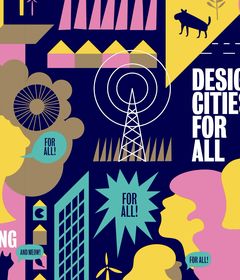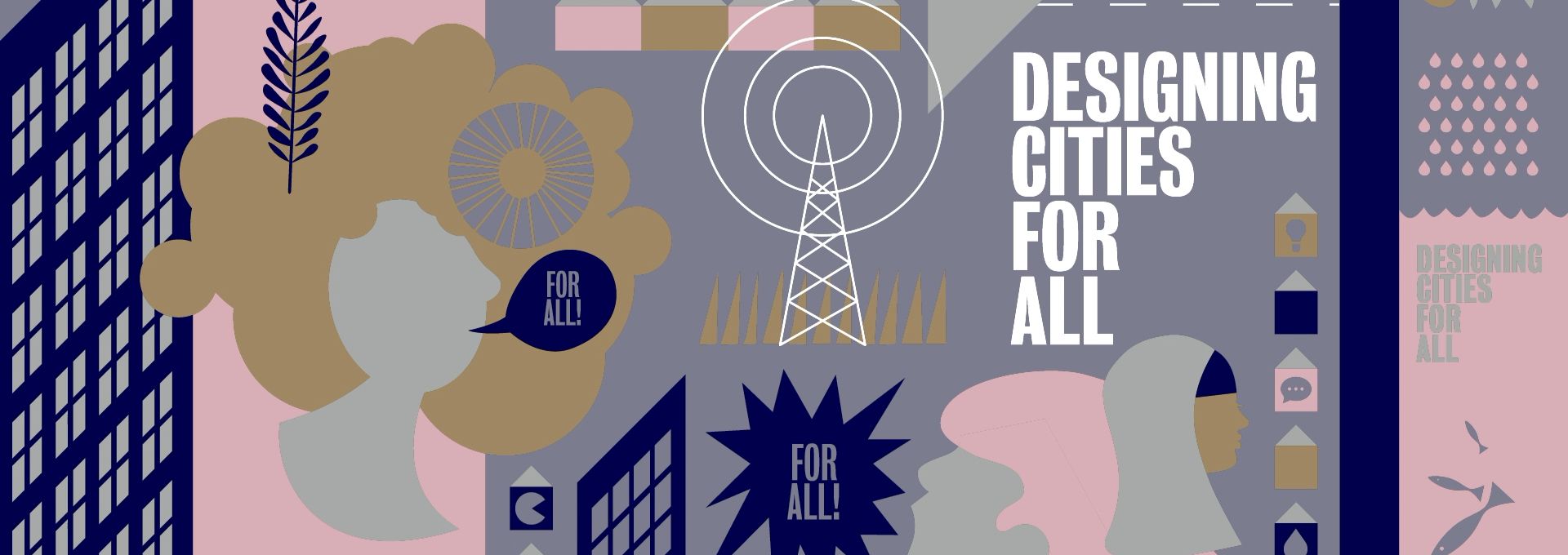How we tell stories, and which stories are told shape our reality and our perspective of the world. In past DCFA programmes, we have seen that the narrative in the design field is still dominated by a Eurocentric, heteronormative, cis male, and white gaze. To design for all, it is essential to involve all stories and perspectives in the design process. Just like design, colonisation touches our daily lives. Decolonisation of design starts with breathing life into the multitude of stories in our society that have been erased and pushed to the margins of society – experiences of Indigenous people, LGBTQI+ perspectives, stories of enslaved people, just to name a few. In this series, we will explore the history of erasure, the manifestations of colonisation in the present, ultimately reimagining a just and decolonised society for all.
Yussef Agbo-Ola is the founder and creative director at Olaniyi Studio based in London. Agbo-Ola’s multidisciplinary architectural and artistic practice is focused on interpreting natural energy systems, through interactive experiments that explore the connections between an array of sensory environments, from the biological and anthropological, to the perceptual and microscopic. His aim is to use diverse multidisciplinary research methods and design components, to reinterpret local knowledge and its environmental importance cross-culturally. His research outcomes manifest through architectural pavilions, photographic journalism, material alchemy, interactive performance, experimental sound design, and conceptual writing. Agbo-Ola holds a Masters in Fine Art from the University of the Arts London, and a Masters in Architecture from the Royal College of Art.
Lelani Lewis creates inspiring experiences with her innovative and vibrant approach to food. Hailing from South London with Grenadian and Irish heritage, Lelani grew up amongst the diversity of cuisine; learning the ins and outs of global flavours from a young age with favourites such as bara and sweet patato pie. Becoming obsessed with developing a mainstream platform for Caribbean food, Lelani wanted to demonstrate just how unique and diverse Caribbean cuisine is, combining her love of bringing people together around the table and paying homage to those who came before her. The rich histories of the islands provide a deep well of inspiration for Lelani to further explore the cultural impact of food, and how the world’s ingredients unravel beautiful– and tragic– stories.
Javier Lizarzaburu is a narratives doctor, urban activist and lecturer. In 2022 he got an MA in Heritage and Spatial Planning at the Vrije Universiteit. His thesis explored the historical urban exclusion in his native Lima using a decolonising approach through architecture, street names and monuments, from 1845 to 1945. Before this, he led two campaigns aimed at rehabilitating the pre-colonial indigenous memory of the Peruvian capital, erased from official narratives for over 400 years. This body of work took him to the Venice Biennale of Architecture in 2018, as co-curator of the Peruvian pavilion. He started out as a journalist, working for the BBC in London for 15 years, winning several international prizes, including the RTDNA/Unity and the Sigma Delta Chi-Society of Professional Journalists awards in the USA. He lives in the Netherlands.
Hanss Lujan Torres is an artist, curator and researcher from Cusco, Peru, working between the unceded territories of the Syilx/Okanagan Nation and Tiohtià:ke/Mooniyang/Montréal. He received a Bachelor of Fine Arts and a Minor in Art History and Visual Culture from the University of British Columbia Okanagan and is an MA candidate in the Department of Art History at Concordia University. His research and curatorial practice consider subjugated archives, queer temporalities, and alternative futures in contemporary art. Hanss is the research coordinator for the Indigenous Futures Research Centre. He is also the curator of the exhibition ‘Time As Relative’, currently on display at the Alternator Centre for Contemporary Art until October 22, 2022.
During this evening, George Adegite will ‘craft’ this shared future through a live illustration based on the stories of the various speakers.


Artist, anthropologist, and architect, Yusef Agbo-Ola’s conceptual practice answers Guattari’s call for mass awakening and renaissance in architecture by looking to many disciplines including art, environmentalism, material science, and anthropology to reimagine architecture as a practice that connects both human and non-human life>>.

Om aan hun eigen vraag naar suiker te voldoen, tuigden Europeanen een vreselijke industrie op. Met een reeks diners leert chef-kok Lelani Lewis haar gasten over de Caribische geschiedenis. ‘Ik realiseerde me nooit hoe sterk kolonialisme de keuken heeft beïnvloed'>>.

There is no monument more contested in Lima than El Ojo que Llora (The Eye That Cries). Almost from the beginning it has been opposed and vandalized. A few years ago, the serenity and beauty of the area, in one of the main parks in the city, was compromised when the local authorities felt it necessary to fence it in to protect it from further violence >>.











